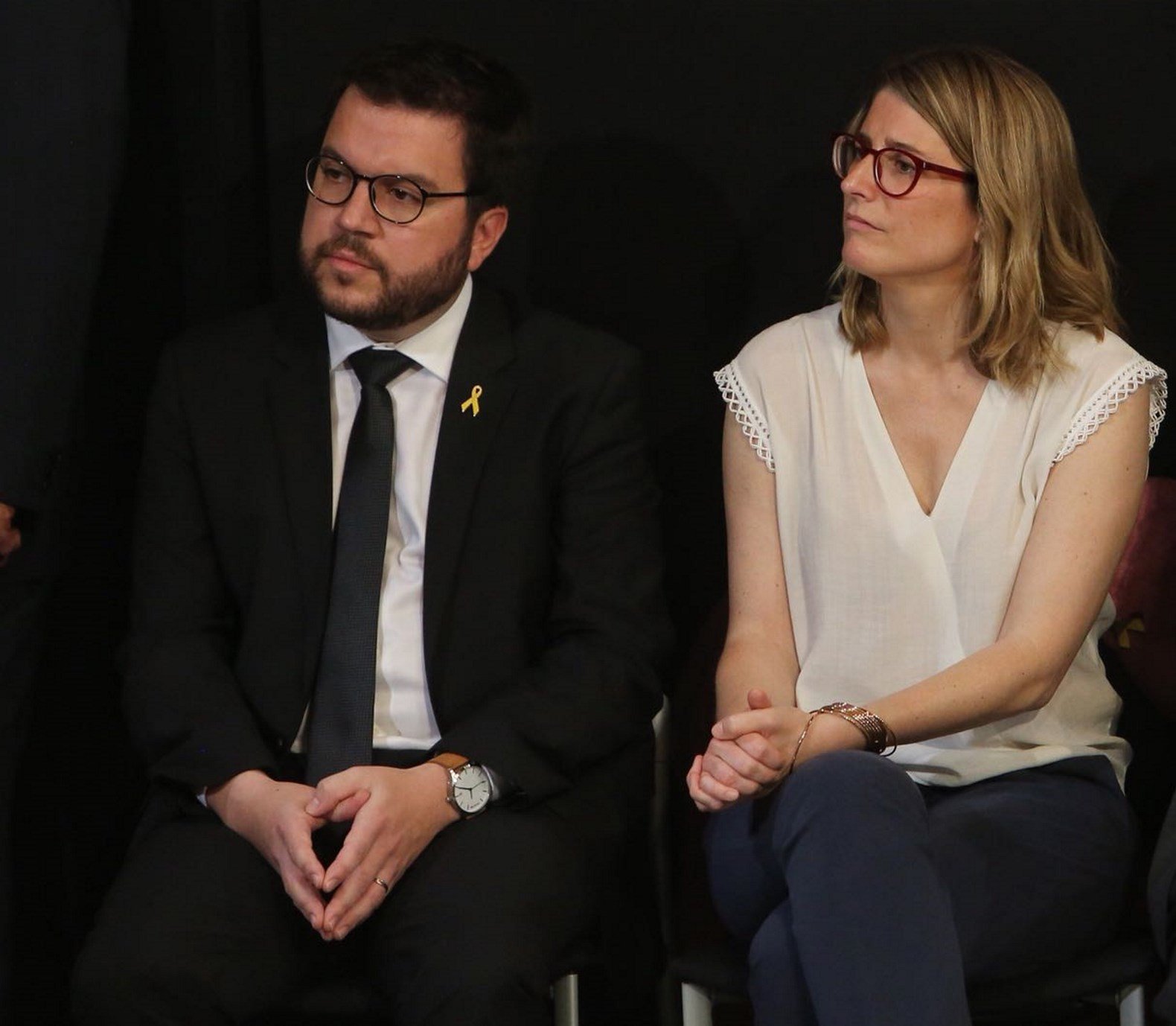"Obviously each and every one of us is needed." Hours after Sunday's announcement of a pre-accord on the formation of a new Catalan government between the Catalan Republican Left (ERC) and the Popular Unity Candidature (CUP), the spokesperson for the former, Marta Vilalta, reiterated the evident arithmetical fact that, for the investiture of ERC's Pere Aragonès as president to succeed, it needs "all the votes of the pro-independence majority". Thus, a crucial week begins with the issue ahead of whether ERC and Together for Catalonia (Junts) will be able to set aside their latent mistrust and smooth over the differences that still remain in the negotiation. With the basis of the pre-agreement with the strongly-leftist CUP established, ERC is now concentrating on "specifying an agreement with Junts that is consistent and compatible" with what the party already put its signature to yesteday.
While waiting for the CUP membership to ratify - or reject - the deal, the party led from Lledoners prison by Oriol Junqueras has the most complex task ahead of it, which is to conclude a government pact with Junts in just five days - before the deadline for the first vote on forming a new government, this Friday. "We have moved faster with the CUP," they say at ERC headquarters. And now they aspire to "fit" Junts into the points of agreement with the anti-capitalist party, including the suspension of police use of foam projectiles, a halt to home evictions of people in situations of risk and the dedication of 25% of the health budget to primary care. But also - as the ERC-CUP agreement states, "to prepare the necessary conditions throughout the legislature to carry out a new democratic challenge, preferably in the form of a referendum."
Negotiations on a deal for a presidential investiture - which is what will formally be voted on this Friday - are not the same as a full agreement on the shape of that president's government, but the latter is necessary before the votes will be conceded. Hence the complexity of the negotiation between ERC and Junts. Despite the difficulties, Vilalta is "convinced" that it will be "possible" to seal a pact so that Friday's first investiture vote will not fail. “We have different points of view and nuances, but we will reach an understand with each other,” she remarked.
The role of the Council for the Republic
There is still the need for the Junts and ERC negotiating teams to delve deeper into the area of the future government's social policies. Nor have the parties yet officially addressed the structure of the executive, although several sources confirm that there will be changes in the distribution of ministries. Some will be split and new ones created.
So far, the talks have been centred in particular on how to move towards independence. One of the sticking points, although according to Vilalta "not the main one", is the role of the Catalan exile body, the Council for the Republic. Both the ERC and the CUP are in favour of reformulating it, because they believe that the entity chaired by Carles Puigdemont is not sufficiently representative of the independence movement. In fact, ERC is only present in a testimonial way - they even distanced themselves from its founding act - and the CUP is not there at all - although one of its constituent organizations, Poble Lliure, does take part.
"We see all the good sides, we see that it is interesting," said Vilalta, but stressed that it is necessary to "turn it around" and "reformulate its role from now on" so that "it can be more involved," bearing in mind that "right now it doesn't bring together all the pro-independence forces."
In the main image, Pere Aragonès (ERC) and Elsa Artadi (Junts).

